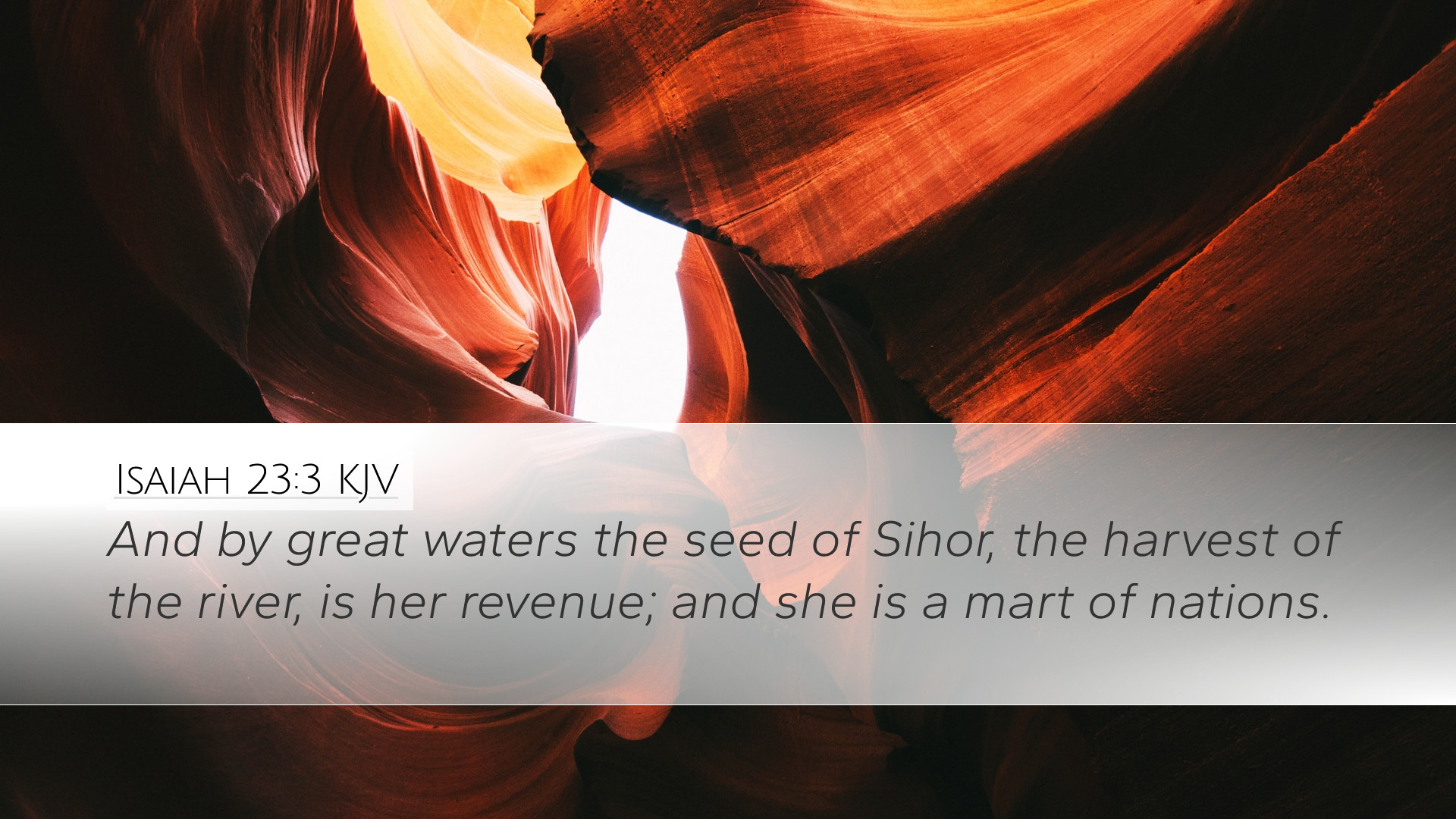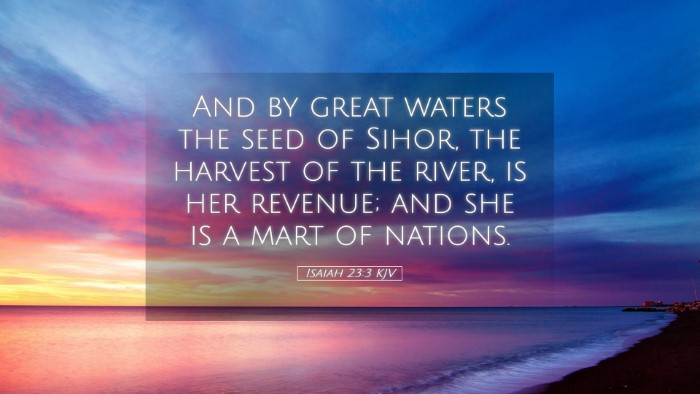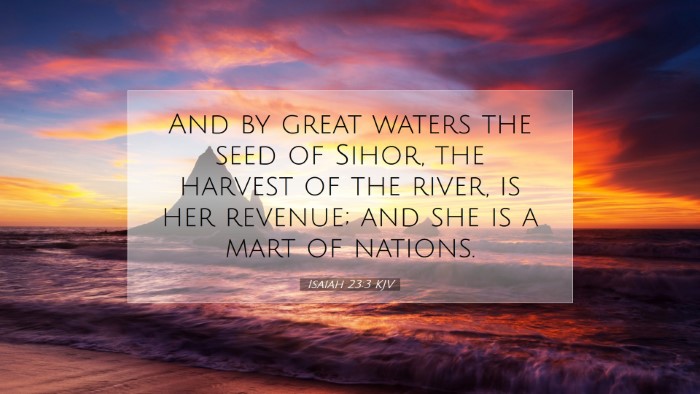Commentary on Isaiah 23:3
Isaiah 23:3 states, "And by great waters the seed of Sihor, the harvest of the river, is her revenue; and she is a mart of nations." This verse is set against the backdrop of a prophecy concerning Tyre, a prominent Phoenician city known for its trade and maritime power. Throughout the various public domain commentaries, key theological and historical insights emerge, shedding light on this emblematic location and its significance in biblical literature.
Contextual Background
The city of Tyre, during the time of Isaiah, was a thriving commercial hub. Its strategic position on the coast of the Mediterranean Sea allowed it to dominate trade routes and amass considerable wealth. The mention of Sihor here refers to the Nile River, suggesting that Tyre's wealth was, in part, derived from trade with Egypt, emphasizing its role as a maritime power (Barnes).
Insights from Matthew Henry
Matthew Henry emphasizes the dual nature of Tyre's prosperity, both reflecting its physical wealth and its spiritual bankruptcy. He notes that while Tyre flourished as a commercial city—importing goods and exporting its luxuries—it was also spiritually impoverished, becoming a symbol of pride and a target for God's judgment. Henry's commentary encourages readers to reflect on the fleeting nature of material success when disconnected from divine favor.
Albert Barnes' Perspective
Albert Barnes provides a detailed analysis of the agricultural metaphor used in the verse. He underscores that the “harvest of the river” indicates a rich, fertile area nourished by significant water sources. Barnes interprets this as an allegorical representation of the abundance found in Tyre, which, despite its good fortune, would face inevitable ruin as a result of divine pronouncement against it. He warns readers about the peril of relying solely on material wealth and the importance of recognizing God’s sovereignty over nations.
Adam Clarke's Explanation
Adam Clarke addresses the phrase “a mart of nations”, highlighting Tyre’s role as a pivotal trade center. Clarke points out that Tyre served as an intermediary, connecting diverse nations through commerce. He further comments on the implications of this verse, suggesting that it foreshadows impending judgment: despite its wealth, Tyre would become desolate due to its continuous idolatry and moral decline, which Clarke argues is a cautionary tale for contemporary societies.
Theological Implications
From a theological standpoint, Isaiah 23:3 invites deeper reflection on the relationship between divine judgment and national pride. It serves as a reminder that no amount of wealth or power can shield a nation from God’s just retribution. This understanding is crucial for pastors and theologians today who seek to communicate the reality of God's justice in a world often blinded by materialism.
Lessons for Pastors and Theologians
- Reverence for God's Authority: This passage encourages believers to seek humility before God's sovereignty, acknowledging that material prosperity is transient.
- Warnings Against Idolatry: Tyre’s example warns against allowing wealth and success to lead to moral compromise or spiritual idolatry.
- Hope for Repentance: Even in judgment, there lies a call for repentance—a theme prevalent in prophetic literature.
Conclusion
Isaiah 23:3 serves as a profound conduit for understanding the spiritual dynamics behind economic power. Through the combined insights of Matthew Henry, Albert Barnes, and Adam Clarke, we glean a composite view of Tyre's dual identity as both a commercial powerhouse and a subject of divine concern. This analysis challenges pastors, students, and scholars to engage with the text not merely as historical literature but as a living word that speaks into the complexities of contemporary society.


